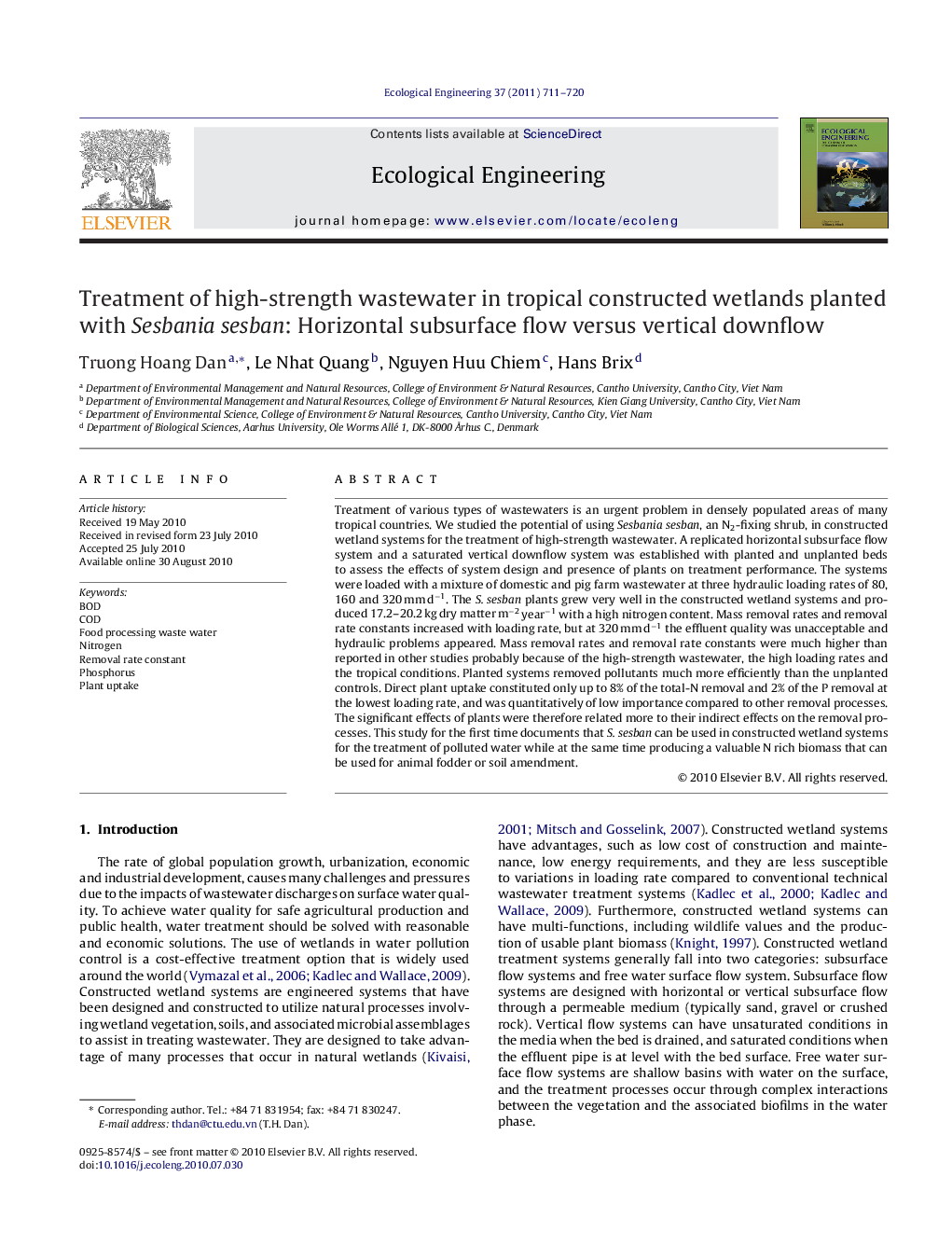| Article ID | Journal | Published Year | Pages | File Type |
|---|---|---|---|---|
| 4390187 | Ecological Engineering | 2011 | 10 Pages |
Abstract
Treatment of various types of wastewaters is an urgent problem in densely populated areas of many tropical countries. We studied the potential of using Sesbania sesban, an N2-fixing shrub, in constructed wetland systems for the treatment of high-strength wastewater. A replicated horizontal subsurface flow system and a saturated vertical downflow system was established with planted and unplanted beds to assess the effects of system design and presence of plants on treatment performance. The systems were loaded with a mixture of domestic and pig farm wastewater at three hydraulic loading rates of 80, 160 and 320 mm dâ1. The S. sesban plants grew very well in the constructed wetland systems and produced 17.2-20.2 kg dry matter mâ2 yearâ1 with a high nitrogen content. Mass removal rates and removal rate constants increased with loading rate, but at 320 mm dâ1 the effluent quality was unacceptable and hydraulic problems appeared. Mass removal rates and removal rate constants were much higher than reported in other studies probably because of the high-strength wastewater, the high loading rates and the tropical conditions. Planted systems removed pollutants much more efficiently than the unplanted controls. Direct plant uptake constituted only up to 8% of the total-N removal and 2% of the P removal at the lowest loading rate, and was quantitatively of low importance compared to other removal processes. The significant effects of plants were therefore related more to their indirect effects on the removal processes. This study for the first time documents that S. sesban can be used in constructed wetland systems for the treatment of polluted water while at the same time producing a valuable N rich biomass that can be used for animal fodder or soil amendment.
Related Topics
Life Sciences
Agricultural and Biological Sciences
Ecology, Evolution, Behavior and Systematics
Authors
Truong Hoang Dan, Le Nhat Quang, Nguyen Huu Chiem, Hans Brix,
